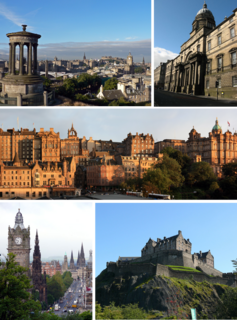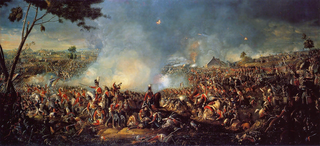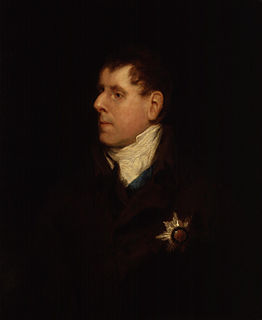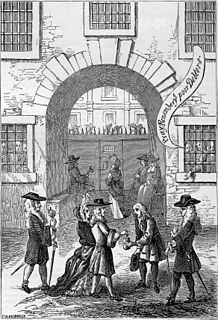
Alexander Monro tertius of Craiglockhart, FRSE FRCPE FSA(Scot) MWS, was a Scottish anatomist and medical educator at the University of Edinburgh Medical School. According to his detractors, Monro was an uninspired anatomist who did not compare with his brilliant father or grandfather as a teacher or scientist. His students included Charles Darwin who asserted that Monro "made his lectures on human anatomy as dull as he was himself."
Prof John Lizars FRSE was a Scottish surgeon, anatomist and medical author.

William Augustus Guy was a British physician and medical statistician.

Prof William Sharpey FRS FRSE LLD was a Scottish anatomist and physiologist. He is described as the "Father of British Physiology".
James Boyd was a schoolmaster and author.
Archibald Robertson was a Scottish physician and medical author who had a notable naval career, followed by a long private practice.
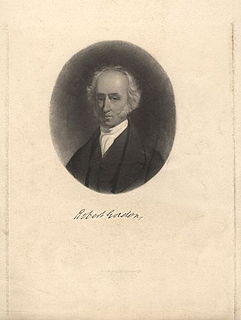
Rev Dr Robert Gordon DD FRSE was a Scottish minister and author. Originally prominent in the Church of Scotland, and serving as Moderator of the General Assembly in 1841, following the Disruption of 1843 he joined the Free Church of Scotland and became a prominent figure in that church.

Sir Andrew Douglas MaclaganPRSE FRCPE FRCSE FCS FRSSA was a Scottish surgeon, toxicologist and scholar of medical jurisprudence. He served as president of 5 learned societies: the Royal Medical Society (1832), the Royal College of Surgeons of Edinburgh (1859–61), the Royal College of Physicians of Edinburgh (1884–87), the Royal Society of Edinburgh (1890–5), and the Royal Scottish Society of Arts (1900).

Sir William Overend Priestley was a British physician and Conservative Party politician. He served as Member of Parliament (MP) for Edinburgh and St Andrews Universities from 1896 to 1900.
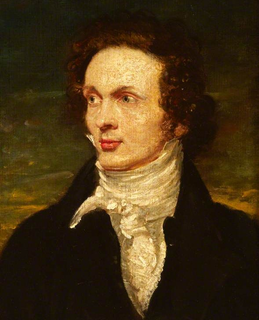
Thomas Alcock was an English surgeon.
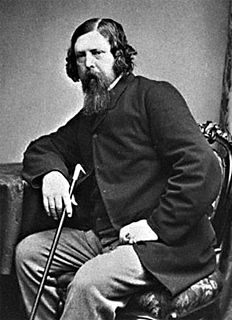
David Skae was a Scottish physician who specialised in psychological medicine.

John Armstrong was an English physician.

Andrew Duncan, the elder FRSE FRCPE FSA(Scot) was a British physician and professor at Edinburgh University. He was joint founder of the Royal Society of Edinburgh.
Andrew Duncan, the younger (1773–1832) was a British physician and professor at Edinburgh University.
Professor Andrew Fyfe FRSE FRCSE PRSSA PRMS was a Scottish surgeon and chemist. Following early studies on Fox Talbot's newly created photographic techniques he was one of the first (1839) to work out the theory behind positive rather than negative prints. He had an amateur interest in photography but appears not to have pursued his own theories and limited his experiments to ferns lying on chemical papers.

Dr Alexander Tweedie FRS was a Scottish physician and writer.

Charles James Blasius Williams was an English physician. He was an early adopter of new techniques of physical examination, and became known as a specialist in diseases of the chest.
Granville Sharp Pattison (1791–1851) was a Scottish anatomist. After losing two British positions, he emigrated permanently to the United States.

Prof Allen Thomson FRS FRSE FRCSE was a Scottish physician, known as an anatomist and embryologist.

Dr John Thomson FRS FRSE PRCPE (1765–1846) was a Scottish surgeon and physician, reputed in his time "the most learned physician in Scotland". He was President of the Royal College of Physicians of Edinburgh from 1834 to 1836.

